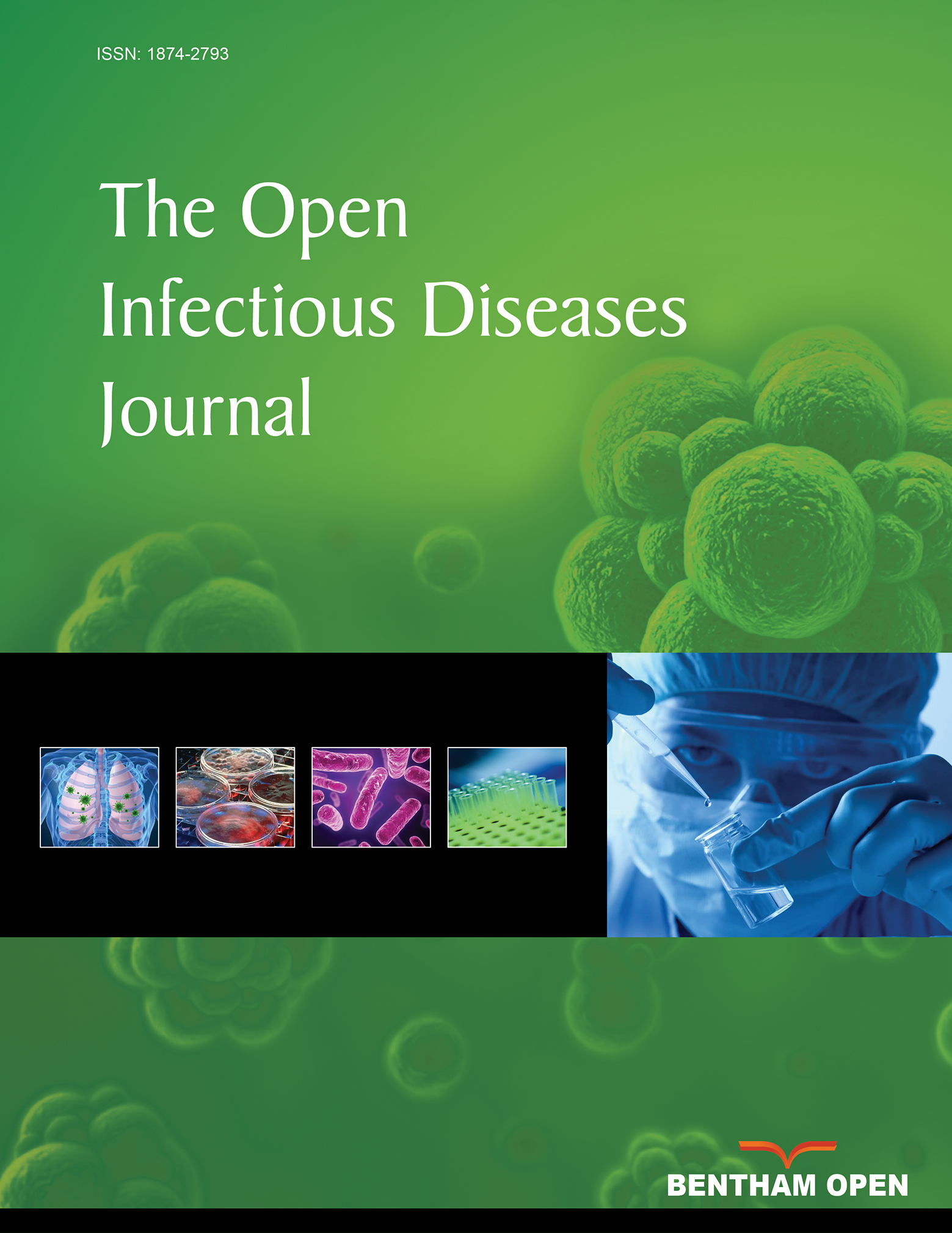All published articles of this journal are available on ScienceDirect.
Infective Endocarditis Related to Intravenous Drug User: Report of Four Cases
Abstract
Objective:
To describe the clinical, laboratory, microbiological, and echocardiographic findings in four intravenous drug users with endocarditis hospitalized and followed in our Infectious Disease Service, a tertiary university hospital as well as to determine the efficacy of medical treatment.
Methods:
From a database of 35 subjects with endocarditis during five years, we made a retrospective analysis of data for four cases between the age of 24-33 years old which were intravenous drug users.
Results:
Infective endocarditis was encountered in four drug users with positive blood cultures (Staphylococcus aureus was present in all the cases), vegetations in the tricuspid native valve in ultrasound, high fever (more than 38oC). The four cases were male and the mean age was 29 years (range 24-33 years). Three out of the four cases presented with pulmonary involvement and only one with femoral and popliteal vein thrombosis. Two out of four cases had acute renal and hepatic failure and only one had acute cutaneous vasculitis. Transesophageal Echocardiography (TEE) was also performed in two cases. For all of them medical management consisted of antibiotic therapy and two out of them underwent surgery because of the persistence of valvular vegetations after antibiotic therapy. The prognosis was good with 0% mortality.
Conclusion:
Infective endocarditis should be considered in the differential diagnosis of intravenous drug users presenting with various clinical scenarios. Echocardiography remains the main modality and should be used serially to facilitate early diagnosis. The successful management of a complicated case often requires the close cooperation of an infectious disease physician, a cardiologist, an addiction physician and occasionally a cardiac surgeon.


